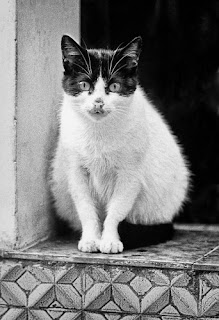11Signs of Pregnant Cat Behavior- Everything You Need to Know
Welcoming a new litter of kittens into the world is an exciting experience for any cat owner. If you suspect that your feline friend might be expecting, it's essential to understand the signs of pregnant cat behavior. In this article, we will explore 11 key indicators that can help you determine whether your cat is pregnant and what you can do to support her throughout the pregnancy.
1. Changes in Appetite
One of the early signs of pregnancy in cats is a change in appetite. Your cat may display an increased or decreased interest in food. Some pregnant cats may become more finicky with their eating habits, while others may develop a voracious appetite. Monitor her food intake closely to ensure she's getting the proper nutrition she needs during this crucial time.
2. Nipple Enlargement and Pinkish Coloration
Around two to three weeks into pregnancy, you may notice changes in your cat's nipples. They might become more prominent and take on a pinkish hue. This is due to the increased blood flow to the mammary glands in preparation for nursing her kittens.
3. Behavioral Changes
Pregnancy can also affect your cat's behavior. She may become more affectionate and seek out more attention from you. On the other hand, some pregnant cats may become more reserved and prefer solitude. These changes in behavior are entirely normal during pregnancy and should be approached with patience and understanding.
4. Nesting Instinct
As your cat's due date approaches, she may display a nesting instinct. She might start looking for a quiet and secluded place to give birth to her kittens. Providing her with a comfortable and safe space will help her feel secure during labor.
5. Weight Gain
Gradual weight gain is expected during pregnancy, but it's essential to monitor your cat's weight closely. Sudden or excessive weight gain could be a sign of complications, and you should consult your veterinarian immediately.
6. Morning Sickness
Similar to humans, pregnant cats can experience morning sickness. They may vomit occasionally, but it should not be excessive. If you notice severe or persistent vomiting, seek veterinary advice promptly.
7. Swollen Abdomen
Around three to four weeks into the pregnancy, your cat's abdomen may start to swell as the kittens grow. Gently feel her belly to see if you can detect any lumps, which could indicate the presence of kittens.
8. Increased Resting Time
Pregnant cats often require more rest than usual. You may find your cat sleeping more frequently or becoming less active. Provide her with a quiet and comfortable resting place to help her conserve her energy.
9. Nipple Discharge
During the latter stages of pregnancy, you may notice a clear or milky discharge from your cat's nipples. This is a normal part of the body preparing for nursing.
10. Increased Affection Towards Other Pets
If you have other pets at home, your pregnant cat might become more affectionate towards them. This behavior is her way of establishing bonds and preparing for her motherly role.
11. Restlessness and Pacing
In the final days before giving birth, your cat may appear restless and exhibit pacing behavior. She may also be more vocal than usual. These are signs that labor is imminent, and you should be prepared for the arrival of the kittens.
FAQs About Pregnant Cat Behavior
1. How long does a cat's pregnancy last?
A cat's pregnancy, also known as gestation, typically lasts around 63 to 65 days.
2. Can I feel the kittens moving inside my cat's belly?
Towards the end of the pregnancy, you may be able to feel slight movements when gently placing your hand on your cat's belly.
3. Should I change my cat's diet during pregnancy?
Consult your veterinarian for advice on the best diet for your pregnant cat. In most cases, a high-quality kitten food is recommended to meet her increased nutritional needs.
4. Is it safe for my pregnant cat to go outside?
It's best to keep your pregnant cat indoors to protect her from potential dangers and ensure a stress-free environment.
5. How many kittens can I expect in a litter?
The average litter size is between 4 to 6 kittens, but this can vary depending on the cat's breed and age.
Final Thoughts On Pregnant Cat Behavior
Understanding the signs of pregnant cat behavior is essential for any cat owner. By recognizing these indicators early on, you can provide the necessary care and support for your pregnant cat during this special time. Be patient and attentive to her needs, and you'll be rewarded with the joy of welcoming a new litter of adorable kittens into your home






